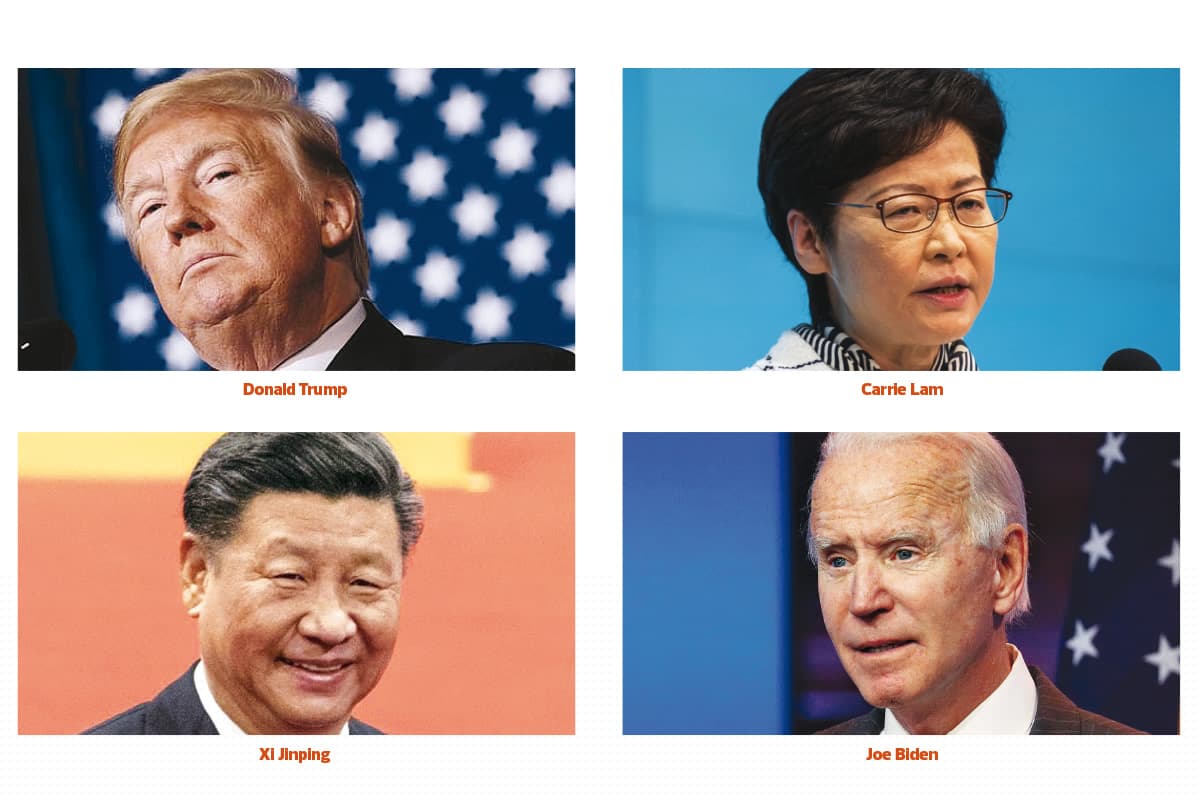
This article first appeared in The Edge Malaysia Weekly on December 28, 2020 - January 3, 2021
THE past year has been nothing short of exciting on the political scene, with countries such as the US, Japan and Malaysia observing leadership changes amid the Covid-19 crisis that has upended businesses across the world. But the pandemic has not been bad for everyone. For many American billionaires, their fortunes have ballooned. As we close out a tumultuous 2020, we take a look at some of the leaders who made the headlines.
Donald Trump
45th US President
Donald Trump was elected the 45th president of the world’s largest economy in 2016 after he beat Democratic nominee Hillary Clinton with his “Make America Great Again” campaign.
However, the 74-year-old Republican failed to stay in office for a second term after he lost to Democrat Joe Biden in this year’s presidential election, which was closely watched the world over.
A major reason for his defeat was his handling of the coronavirus pandemic. Trump, who had referred to Covid-19 as the Chinese virus, is said to have ignored the early signs of how dangerous it was. He had been reluctant to wear a face mask for months despite the pandemic and wore one for the first time on July 12. When he was tested positive for Covid-19 in October, he managed to discharge himself from hospital within three days and returned to the campaign trail soon after.
In the days leading to the Nov 3 presidential race, Covid-19 cases in the US surged, with 100,000 new cases recorded daily. At the time of writing, there were more than 322,000 deaths.
Trump continues to push his election fraud claims and has initiated legal proceedings. This is despite the Electoral College acknowledging Biden as the next president.
Ahead of Trump vacating the White House, he is reported to be looking at possible pardons for some 20 aides, allies and family members, and even for himself.
During the year, the US had ordered China’s consulate in Houston, Texas, to close, accusing China of espionage and stealing intellectual property. Trump had also attempted to ban the popular TikTok app in the US.
In November, the US formally withdrew from the Paris climate agreement — to keep the rise in global temperatures this century well below 2°C — a decision Trump made in 2017. Prior to his entry into politics, he was a businessman and a television personality. — By Vasantha Ganesan
Carrie Lam
Chief Executive of Hong Kong
Carrie Lam broke the glass ceiling by being the first woman to become the chief executive of Hong Kong. Unfortunately, that is not how she will be remembered by most of its people.
In recent years, she has become one of the most controversial leaders of the semi-autonomous region. Following the pro-democracy protests that broke out over an extradition bill in 2019, and earned her the title of most unpopular leader in Hong Kong, she still remains in office, with no signs that she will step down. Some speculate that Beijing did not allow her to do so with no suitable successor available.
Earlier in the year, Lam’s slow response in closing border crossings due to the Covid-19 virus further riled Hong Kong’s populace. She initially rejected demands to temporary bar arrivals from mainland China, calling it “discriminatory”.
It was only after the first death from Covid-19 in Hong Kong and healthcare workers went on strike that Lam finally ordered a 14-day quarantine for all travellers entering through the mainland.
But what truly grabbed the headlines this year was the national security law that came into force and sparked outrage in Hong Kong and around the world. Seen as a crackdown on political freedom and free speech, Lam defended the legislation, and said it has been “remarkably effective in restoring stability” in Hong Kong.
In response, the US imposed economic sanctions on her and 10 other current and former officials.
This means that Americans and businesses are prohibited from dealing with those under sanction. Lam was left without a bank account and unable to undertake any banking transactions.
In an interview with TV channel HKIBC, she told the broadcaster that she was “using cash every day for all the things” after being sanctioned, and had “piles of cash at home”, with her salary being paid in cash.
“To be so unjustifiably sanctioned by the US government, it’s an honour,” she added. — By Esther Lee
Save by subscribing to us for your print and/or digital copy.
P/S: The Edge is also available on Apple's AppStore and Androids' Google Play.



